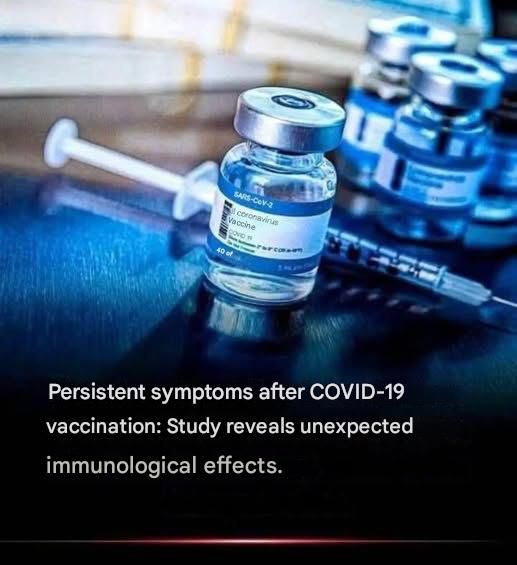COVID-19 Update: What Experts Say About Long-Term Effects and Vaccination in 2025
Since the start of the COVID-19 pandemic, billions of people around the world have been vaccinated to protect themselves from severe illness, hospitalization, and death. As 2025 unfolds, many are asking an important question: What are the long-term effects of both the virus and the vaccines—and what should vaccinated people expect next?
Here’s a detailed look at what scientists and global health experts are warning about today.
1. COVID-19 Isn’t Gone Yet
Even though the world has moved on from lockdowns and daily case counts, the coronavirus has not disappeared. According to the World Health Organization (WHO), new variants continue to circulate, though they tend to cause milder disease in most people. For vaccinated individuals, this means protection remains strong, especially against severe illness, but booster doses may still be necessary for older adults and people with weak immune systems.
Experts stress that the virus is becoming more like the seasonal flu—something that can still cause serious problems for vulnerable groups but is manageable for most healthy adults.
2. Long COVID Remains a Concern
One of the biggest ongoing challenges is “long COVID,” a condition that can appear weeks or months after infection, even in vaccinated people. Symptoms such as fatigue, brain fog, and shortness of breath may persist long after someone tests negative.
However, studies show vaccination significantly reduces the risk of developing long COVID. People who stay up-to-date with boosters are much less likely to suffer lingering symptoms compared to the unvaccinated population.
Doctors recommend regular exercise, healthy nutrition, and good sleep habits to help support recovery and reduce inflammation if symptoms appear.
3. What the “Global Warning” Really Means
Recently, health organizations have issued what some media outlets called a “global alert.” This is not a warning against vaccinated people—it’s a reminder that everyone, regardless of vaccination status, should remain cautious as new variants evolve.
The message is clear: vaccination alone is not the final step. Continued monitoring, updated boosters, and responsible personal behavior (such as staying home when sick) are still part of living with COVID-19 safely.
Experts warn that misinformation spreading online can cause unnecessary panic. Always check information from verified health sources such as WHO, CDC, or your national health ministry.
4. What Scientists Are Watching in 2025
Researchers are currently focusing on three main areas:
-
Booster effectiveness: How long does protection last, and how often should boosters be given?
-
Variant resistance: Will future strains bypass current immunity?
-
Long-term immunity: How can natural infection and vaccines together build strong, lasting protection?
Preliminary data show that people who were vaccinated and later exposed to mild infections tend to develop “hybrid immunity”—a powerful, long-lasting defense that could help end the pandemic phase for good.
5. How to Protect Yourself Going Forward
While there’s no reason for fear, experts emphasize that COVID-19 is still unpredictable. Here are science-based recommendations for 2025:
-
Stay informed from official health sources.
-
Get updated boosters when recommended by your local health authority.
-
Support your immune system through balanced nutrition, exercise, and sufficient sleep.
-
Be cautious in crowded spaces, especially during flu and COVID seasons.
-
Test early and isolate if you experience symptoms to protect others.
Final Thoughts
The real global warning is about complacency, not vaccination. COVID-19 has evolved, but so has our understanding of it. Vaccines remain one of the safest and most effective tools in modern medicine. Instead of fear, health experts call for awareness, responsibility, and continued scientific progress.
The pandemic taught the world an important lesson: collective action and accurate information save lives. As we move into a post-pandemic world, staying informed—and rejecting false claims—is the best protection we have.

















